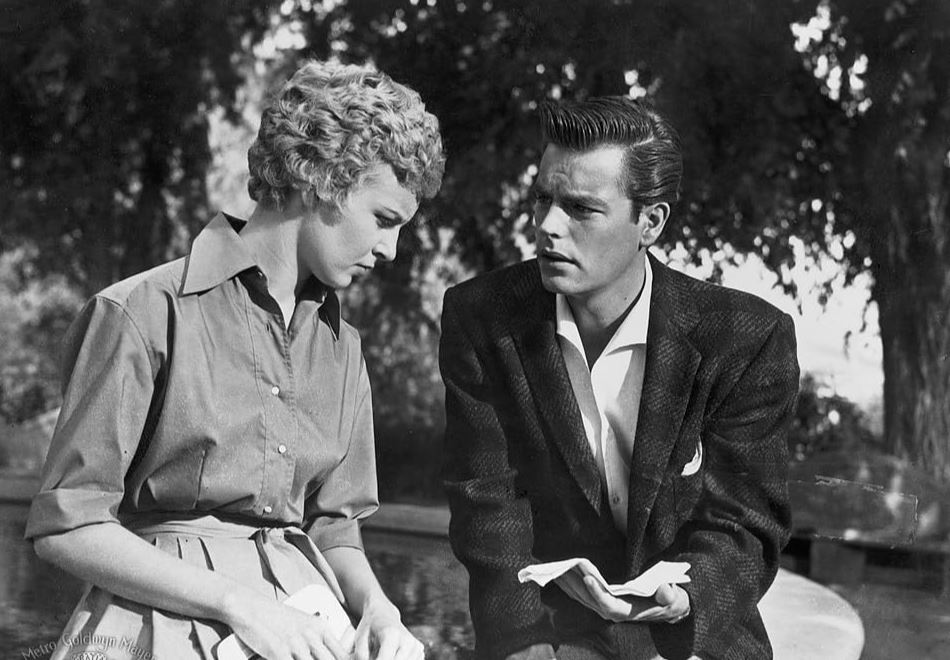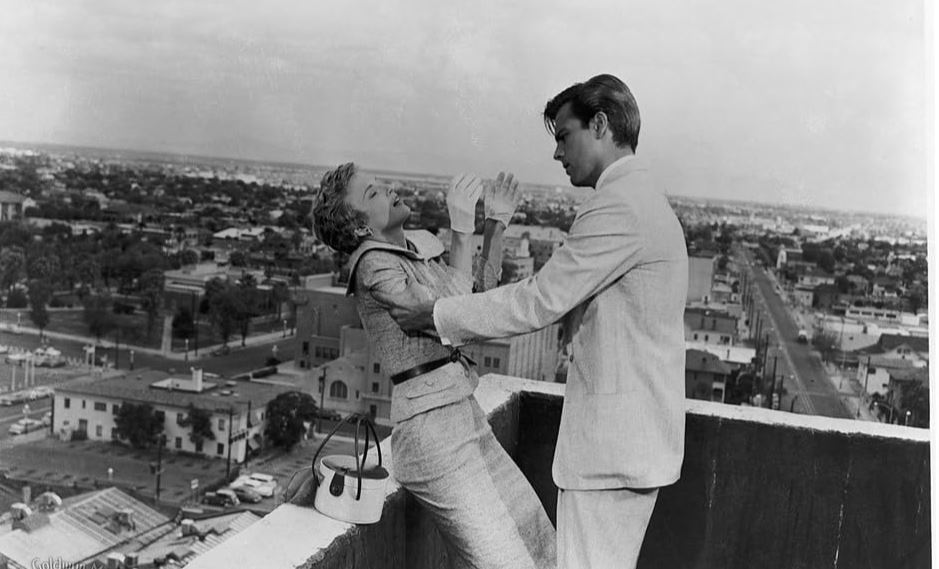
A man engages in a brief affair with a young lady. That same young lady soon announces that she is pregnant. The man is openly supportive, even a bit sentimental. Hell yes we’ll build a future, and by god, we’ll tie the knot later this week. Just give me a chance to get some things in order. Sure, I had hopes and dreams and a fortune to chase, but changing diapers and averaging two hours of sleep per night sounds infinitely better. Loving words are exchanged, along with knowing looks. The man is Bud Corliss (Robert Wagner), the woman is Dorothy Kingship (Joanne Woodward). The woman has less than a week to live.
Sure, the calendar might read 1956, but it could just as easily be 2012. Or 1488. Any way you slice it, a woman is with child, and a man would prefer something else. Anything else. Funny how the growth of a child inside a woman’s belly is the number one reason why men, heretofore gentle as mice, suddenly turn murderous. Not even a lust for money comes close. At best, it’s a distant second. It’s why that statistic made the rounds a few years back: if a pregnant woman dies, rest assured a man is the reason behind it. Like 99.9% of the time. So Bud had the odds stacked against him. Fate intervened. What other choice did he have? Surely you don’t think he’s going to raise the thing.
The beauty of A Kiss Before Dying, and Bud’s role in it, is that it is literally about nothing else but his desire to kill, the act itself, and the push to cover it up. Clean, easy, and oh so clockwork. There’s often beauty in simplicity, and here is one of the era’s best examples of that maxim. No side stories to distract us, and no hokey surprises along the way. After all, there’s no mystery here; we know damn well he killed her, and we can’t exactly disapprove. I mean, it’s easy to believe they had been fooling around for only a few weeks, and as we learn, the whole thing was merely a ruse to get after Dorothy’s hotter, wealthier sister. She should feel lucky to have been included at all. Now you want to play hardball? Honey, this is Robert Wagner, the very man who tossed a very attractive Natalie Wood off a boat for no other reason than he felt like it. And Dorothy, you’re no Natalie Wood.
Naturally, because this is the 1950’s, cinema’s greatest decade for dime store analysis, Bud has a controlling mother (good god, he’s still living at home in his mid-20’s!), and one hell of an inferiority complex. He’s never been good enough, and daddy ain’t around. He likely never was. And as we know, tough moms and absent dads create one of two things: latent homosexuals or psychopathic killers, and Bud is very much a ladies’ man. So murder it is, with some arsenic he steals from the chemistry lab. Only she doesn’t take the pills he practically shoves down her throat in a fit of rage (subtle, he’s not). Having mailed a phony suicide note that he can’t intercept, he has but hours to make good on his dream. He’ll have to push her off the side of a tall building.

To Bud’s credit, he’s pretty damn careful carrying out his crime. There’s the suicide note, an alibi with mother dear, and he made sure Dorothy never told a soul that they were dating. He even kills a guy (Dwight) who gets wise and seems to be about to provide hot sister with some disturbing news. Only he slips. Just this once. You see, he shoots Dwight dead, stages the scene as a suicide, and even types up a convenient note for the authorities to find. Guilt, it states, over having killed Dorothy. Only that wasn’t possible, because Dwight was in a tennis tournament in Mexico at the time, and there’s a newspaper article to prove it. So the whole story falls apart, and a determined investigator puts it all together. Soon after, Bud himself is hit by a truck and falls to his death at a copper mine. Love does not conquer all.
The insane ethics of the decade’s production code wouldn’t allow Bud to marry the hot sister and inherit the family fortune, so we’ll have to accept the hollow alternative. In the end, that’s the real tragedy. Just once I’d like to see a man’s desperation lead to a life of ease and great esteem, instead of prosecution and an early grave. What I love about men like Bud is that, despite very, very few people ever getting away with murder (especially involving a wife or lover), they craft a plan, weigh options, draw up blueprints, and act as if no one had ever tried this shit before. Doomed to fail, they remain idealists, right up to the very moment they’re caught. Usually within hours, or maybe a few days. For that brief moment in time, their world is reduced to a few gestures, and they are in total control. A pity they have to turn the page.
Leave a Reply